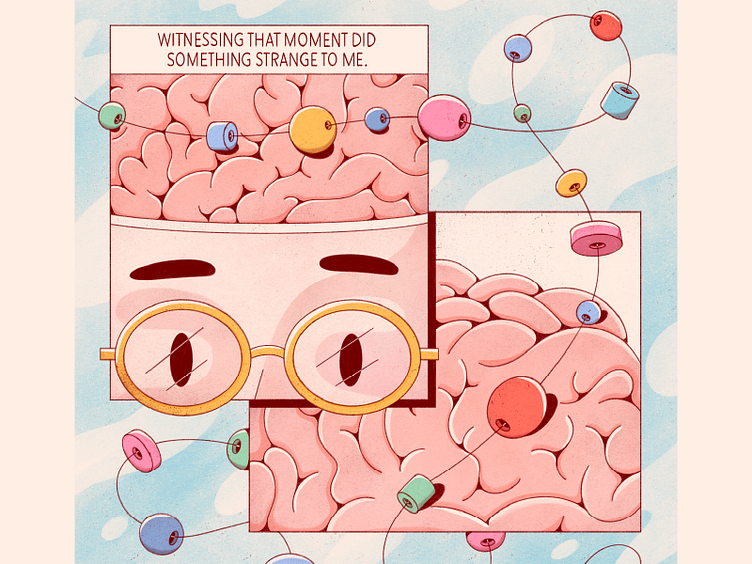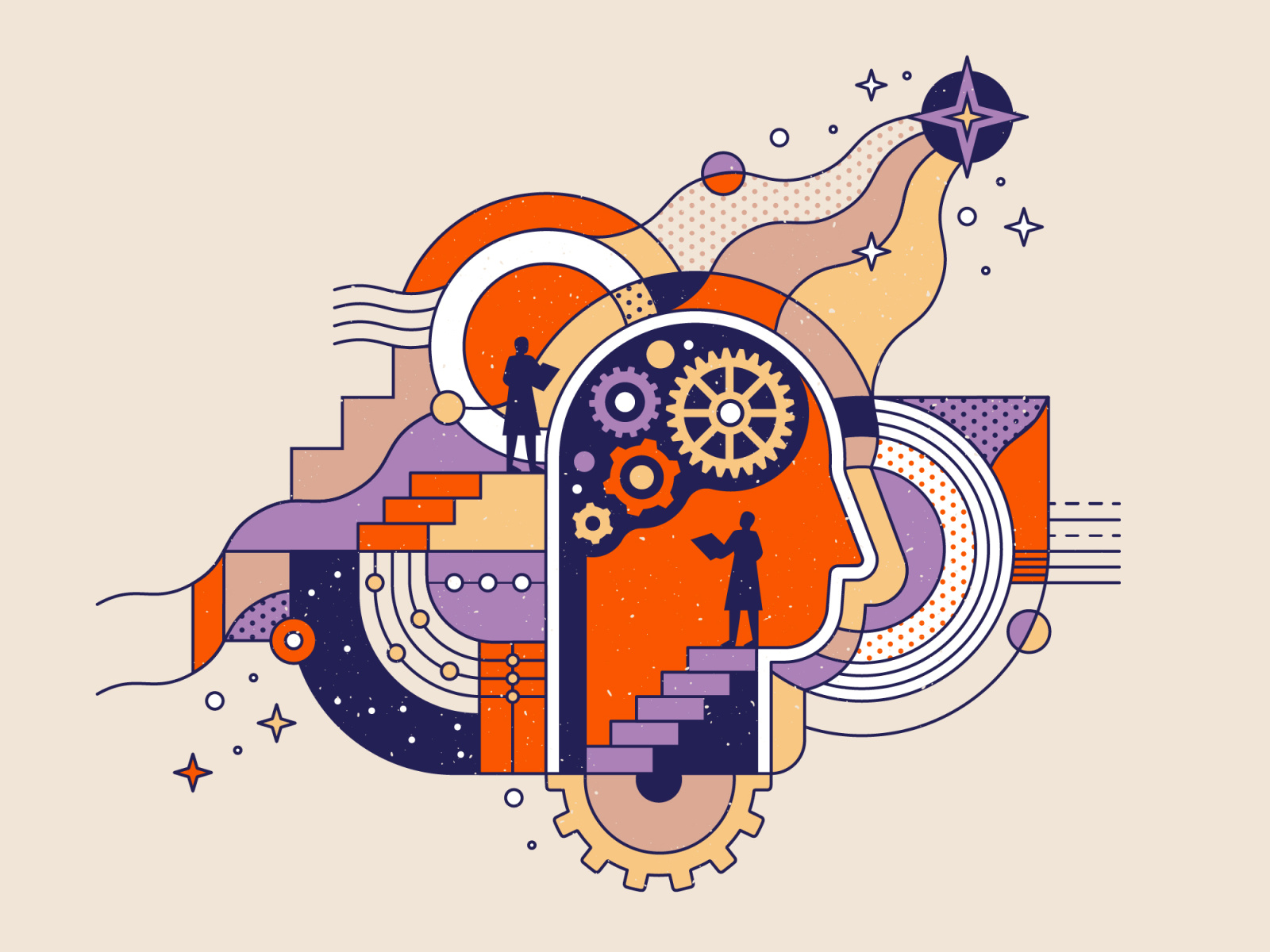 Image by Roberlan Borges Paresqui
Image by Roberlan Borges Paresqui
Irrationalily is the fact that people think, speak or act not from logical things. You buy a design course because a lot of people have already purchased the course. You take the initiative to sit in a strange coffee shop just because you see a long line of people waiting to be bought. As Howard Rankin, author of I Think Do that I Am Wrong: A Guide to Bias, Political Correctness, Fake News and the Future of Mankind wrote: “Human beings are not logical, we are storytellers most interested in emotional comfort and safety, We can convince ourselves and justify anything.” or “We are basically still Neanderthal” 1 - He emphasized - “Focused on survival and safety, and living in the present. Our brains haven’t adapted to a much more complex world”.
There is another thought, long ago classical economic supposes2 that people always act rationally when Give decisions. Neoclassical economics3 approaches the problem and assumes that all rational economic actors have a ” perfect amount of information” which leads to the rational action of optimizing behavior. However, in reality, there is no such perfection, people increasingly realize that people always act irrationally. Some irrational behaviors, you can easily notice include fashion racing, crowd action, stock market and real estate bubbles… We will try to find out what is the cause of these irrational actions.
Is irrationality a primal instinct of the brain?
As we mentioned above, human instinct is still survival and self-safety. The human brain takes up 20% or more of the body’s energy (equivalent to about 400-500 calories a day)4 for thinking maintaining and coordinating activities. So when put in some complicated situation or have to think through, the brain falters and we choose a safer, faster, simpler option.
The human brain is most strongly focused on the present.
What people see directly, immediately, and concretely will be considered much more valuable than something uncertain and distant. Do you get used to seeing a person choose to eat a lot of fast food because it brings instant happiness instead of choosing to go to the gym to have a healthy and beautiful body after a few years?
#FYI:
- Brain imaging reveals that the amygdala, an area thought to control our emotions and mediate the ‘fight or flight’ response, is the background underpinning this bias in the decision-making process.
- People with more rational behavior had greater brain activity in the prefrontal cortex, an area known to be involved in higher-level regulatory execution.
- Interestingly, the amygdala was active in all participants, regardless of whether they behaved rationally or irrationally, suggesting that everyone experiences an emotional response when faced with an emotional response.
 Image by Gillian Levine
Image by Gillian Levine
Human brains will naturally feel bored and frustrated with existing habits even if that habit brings many benefits to them. So irrational thoughts are the source for people to go ahead with creativity and innovation. It can be said that the instinct of a species has created irrational thoughts to help people advance like a hurricane and non-stop.
Is irrationality beneficial or harmful?
In fact, the above headline is already a form of irrational thinking. Irrationality is not something that explicitly either benefits or harms people.
Irrationality is the source of creativity, imagination, and invention
Most people think irrational thinking brings more negativity and need to try to get it out of the mind, but actually removing this thought is what needs to be done.
Albert Einstein once said: “The true sign of intelligence is not knowledge but imagination.” It means that it is not enough to hold knowledge and learn formulas, but the motivation of life must be to think beyond the imagination.
Do you think a person is trying to invent something without having passion, purpose, creativity, or hope in him? But this is part of the emotional mind - an irrational intelligence.
Could Albert Einstein have made great discoveries if he hated the strict rules that teachers had to follow and made students memorize at nine and a half years old (Depression) and didn’t write “I see myself becoming a teacher of these branches of natural science, choosing the theoretical part of these sciences.” at 16 years old (Ownership)5. I’m afraid not, these emotional minds need to be nurtured, trained, and developed to become an inexhaustible source of emotions that will allow him not only to dream but turning them into reality.
 Image by Kasia Bojanowska
Image by Kasia Bojanowska
Irrational causes many problems
Some of them make us compare constantly, so we always feel inferior, more shy, and more unsuccessful when using social networks and conversely, people who use social networks tend to do it themselves. I stand out more because I’m afraid to lose.
The comparison is probably the reason most companies don’t publish everyone’s salary, what would happen if you saw a colleague in the same position as you have a higher salary, most of you would feel at a loss and reduce productivity or think that they are not being paid commensurate with their efforts.
Comparing too much makes people take longer to choose. (Hick’s Law)6
Some companies I think are still applying the wrong way, they penalize workers for being late which can bring more stagnation, be careful with this approach. We don’t feel as remorseful about what we’ve done when we have to pay for it, so people will think they deserved the fine and will come later instead of as soon as possible.
Eliminate negative irrational thoughts
There will be many everyday situations that stem from irrational thoughts but make us depressed or unhappy about life, we can call them “cognitive distortions”
Tendency to reject positive words
This tendency is mostly seen among Asians, possibly due to low self-esteem, excessive modesty, or shyness. The funny thing is that these people find enough excuses to make the compliment meaningless, “They compliment me just because I’m standing next to the company’s excellent employees, they just don’t want to upset me”, “It’s no big deal to solve those bugs, users may not even know about those bugs.” (Laugh). I advise you if you are in this situation to happily accept compliments and thank them, after all, all sincere compliments have positive emotional benefits for us, remember what you do is the bricks that contribute to the great success of a product.
Either genius or fool
This Dualism thinking7 appears in almost every aspect of life, as I said above, the brain always goes for simple thinking, which in this case will put people in one of two basic states, either you’re very good or you’ll just end up doing terrible things. Like when you meet a new employee at a company, the initial thought will be “This person is great” or “This person just brings trouble” without allowing for complications. In fact, our lives are colorful and diverse, it is impossible to have clear black and white. If you’ve ever had this mindset, try taking it a step further, with the skills they’re demonstrating, try to see which skills are helping you or the company, and what skills they can improve on further improvement in the near future. Looking at them closely and from multiple perspectives helps you to reduce this Dualism thinking.
I’m the cause of every problem I face
This is probably the most harmful way of thinking, you often blame yourself for mistakes that are often not your fault “The team lost is because of me”, “The IQ of the whole city dropped because of me”… You have to practice many times by reflecting on each step of the problem and assessing whether your impact was enough to cause the problem. Usually not (unless you do it on purpose).
What are countries doing to deal with the irrational actions of citizens

Setting default options8 is the smart way to go. By default, the size of the pantry dishes of European countries is smaller than that of the US, partly to help people in these countries have a lower obesity rate than the US.
Even public transport is a default option. In Japan, despite the fact that most citizens of other countries do not exercise in their free time, but in Japan, they still try to keep their bodies in balance, that is investments in public transport, the design of the station’s position relative to the houses of the citizen or even the walkways up and down at the stations have made the citizen of their country practice unconsciously.
For the past three decades, countries have “forced” their citizens to wear seat belts in cars and helmets when riding motorbikes, which is a combination of annoying beeps while riding, and heavy fines. If you can’t get people to do it for the right reasons, get them to do it for the wrong reasons.
What improvements has your country made to deal with irrational actions of citizens?
Footnotes
-
Neanderthals are an extinct species or subspecies of archaic humans who lived in Eurasia until about 40,000 years ago. Approximately 1–4% of the Eurasian, Australo-Melanesian, Native American, and North African genomes are inherited from Neanderthal ancestors, while the population of Sub-Saharan Africa consists of only 0,3% Neanderthal genes. Neanderthal ↩
-
Classical economics is a school of economics in which the most important assumption is that the economy can self-regulate based on the natural laws of the production and exchange of goods. Classical economics - Wikipedia ↩
-
Neoclassical economics is a school of economics that focuses on price-determining mechanisms based on utility-maximizing consumer behaviors. Neoclassical economics - Wikipedia ↩
-
How much energy does thinking use? - BBC Science Focus Magazine https://www.sciencefocus.com/the-human-body/how-much-energy-does-thinking-use ↩
-
Was Albert Einstein really a bad student who failed math? - The Washington Post https://www.washingtonpost.com/news/answer-sheet/wp/2016/02/11/was-albert-einstein-really-a-bad-student-who-failed-math/ ↩
-
The time it takes to make a decision increases with the number and complexity of choices. Hick’s Law | Laws of UX ↩
-
Dualism - Wikipedia https://en.wikipedia.org/wiki/Dualism ↩
-
“Don’t make me think”, a book writen by Steve Krug, 2000. The author pointed out that people have limited energy, they won’t bother to choose again when they think the default option is best for them. ↩
